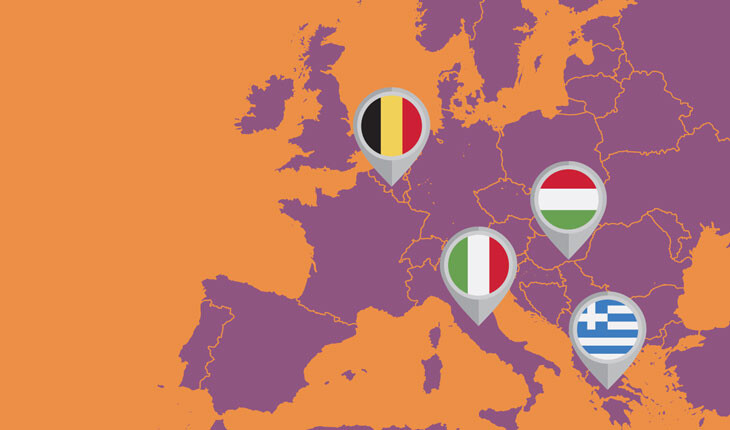
'CarePath' will help Europe’s children access trauma-informed leaving care support
June 2018 marks the start of a ‘CarePath’ project, a two-year initiative which aims to improve national and regional child protection systems in providing integrated aftercare support to children ageing out of care.
Co-funded by the European Union’s Rights, Equality and Citizenship Programme and coordinated by the University of Turin (Torino, Italy), the project will run in Italy, Greece, Hungary and Belgium. Partners include Calabria Regione and the Person-Centred Approach Institute (IACP) in Italy, ReadLab, E-Trikala and ERGO in Greece, Cordelia in Hungary and Eurochild in Belgium.
When it comes to children’s participation, only a few EU Member States have ensured that the views of children are reflected in planning for leaving care, according to EU Agency for Fundamental Fights (FRA). Even where child participation takes place, leaving care mechanisms fail to screen and assess children’s trauma to effectively respond to their needs towards independent living. The UN Guidelines for the Alternative Care of Children highlight the importance of timely and adequate preparation for leaving care and aftercare support to children and young people transitioning out of alternative care. The need to prioritise protection of children leaving public care, including unaccompanied and separated children, who experienced violence, grief for lost places and trauma caused by separation, is widely recognised both within the EU and beyond. Addressing the gaps in service provision, such as the lack of children’s participation, inappropriate care and therapy arrangements, the lack of psycho-social support or multi-sectoral collaboration to implement a durable solution is the focus of the ‘CarePath’ project.
The aim of the project is to ensure that children ageing out of care have access to adequate trauma-informed aftercare support, as part of an integrated child protection system in each participating country. It will build the capacity of professionals in child protection systems to effectively support traumatised children by taking into account their views. The project will strive to develop a sustainable mechanism to enable public authorities and professionals to provide integrated psycho-social support services to children leaving care, based on trauma-informed interventions.
Project activities will focus on:
- identification of transferable leaving care mechanisms and trauma-informed interventions;
- training of professionals working with traumatised children, based on the views of care leavers and adolescents in alternative care;
- development of an open online course for professionals on leaving care and aftercare support provision;
- establishment of the CarePath integrated service provision mechanism for cases of traumatised children leaving care;
- organising a European conference on trauma-informed child protection systems.
The project will target public authorities, municipalities and bodies responsible for child protection in four European countries. It will also involve professionals such as psychologists, psychotherapists, arts therapists, social and healthcare workers, counsellors working with children ageing out of care, as well as vocational training providers in the field of psychotherapy, arts therapy, social work, education, healthcare.
Luca Rollè, Assistant Professor of Dynamic Psychology from the Department of Psychology, University of Turin and the ‘CarePath’ Project Coordinator said: “Children in alternative care require trained professionals who can help improve their future chances, during and after leaving care. Psychotherapy and other therapeutic approaches have proved to be important for the process of children's trauma. Overcoming the effects of trauma allows for greater identity integration and is the prerequisite for an increase in well-being at the bio-psycho-social level.” He added: “Public authorities should invest in integrated trauma-informed support programmes and evidence-based policies, guided by the children’s views and their individualised needs for self-care, social inclusion, practical and inter-personal skills, housing and living”.
For more details about ‘CarePath - Empowering public authorities and professionals towards trauma-informed leaving care support’ and for contacts of project partners at national level please see this brochure .



